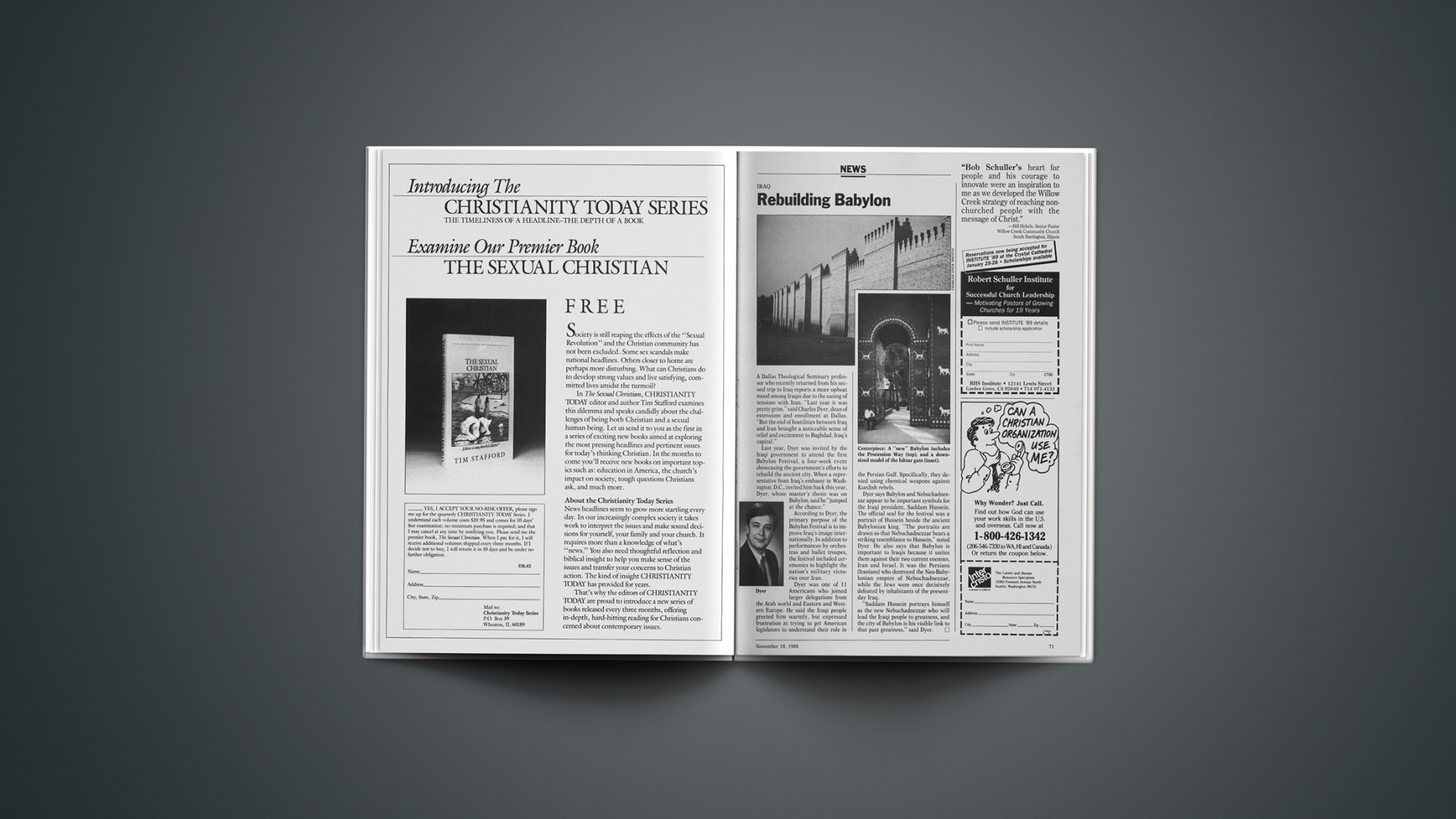IRAQ
A Dallas Theological Seminary professor who recently returned from his second trip to Iraq reports a more upbeat mood among Iraqis due to the easing of tensions with Iran. “Last year it was pretty grim,” said Charles Dyer, dean of extensions and enrollment at Dallas. “But the end of hostilities between Iraq and Iran brought a noticeable sense of relief and excitement to Baghdad, Iraq’s capital.”
Last year, Dyer was invited by the Iraqi government to attend the first Babylon Festival, a four-week event showcasing the government’s efforts to rebuild the ancient city. When a representative from Iraq’s embassy in Washington, D.C., invited him back this year, Dyer, whose master’s thesis was on Babylon, said he “jumped at the chance.”
According to Dyer, the primary purpose of the Babylon Festival is to improve Iraq’s image internationally. In addition to performances by orchestras and ballet troupes, the festival included ceremonies to highlight the nation’s military victories over Iran.
Dyer was one of 11 Americans who joined larger delegations from the Arab world and Eastern and Western Europe. He said the Iraqi people greeted him warmly, but expressed frustration at trying to get American legislators to understand their role in the Persian Gulf. Specifically, they denied using chemical weapons against Kurdish rebels.
Dyer says Babylon and Nebuchadnezzar appear to be important symbols for the Iraqi president, Saddam Hussein. The official seal for the festival was a portrait of Hussein beside the ancient Babylonian king. “The portraits are drawn so that Nebuchadnezzar bears a striking resemblance to Hussein,” noted Dyer. He also says that Babylon is important to Iraqis because it unites them against their two current enemies, Iran and Israel. It was the Persians (Iranians) who destroyed the Neo-Babylonian empire of Nebuchadnezzar, while the Jews were once decisively defeated by inhabitants of the present-day Iraq.
“Saddam Hussein portrays himself as the new Nebuchadnezzar who will lead the Iraqi people to greatness, and the city of Babylon is his visible link to that past greatness,” said Dyer.










